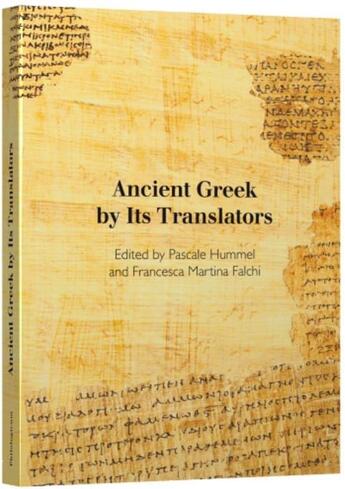-
Date de parution : 10/02/2022
-
Editeur :
Philologicum
-
EAN : 9782917741542
-
Série :
(-)
-
Support :
Papier
Résumé:
When not familiar with the language itself, most readers over the centuries have had access to the ancient Greek texts only or mostly through (Latin or vernacular) translations. Such an approach is not only indirect and mediated, but also distorted and even impoverishing : meaning then prevails... Voir plus
When not familiar with the language itself, most readers over the centuries have had access to the ancient Greek texts only or mostly through (Latin or vernacular) translations. Such an approach is not only indirect and mediated, but also distorted and even impoverishing : meaning then prevails over the linguistic form and substance of the texts themselves. What do later or modern readers read when they read translated texts written in an ancient so-called dead language? They read a given meaning - sometimes unfaithful, often inaccurate - dictated by a genuine understanding, the blind continuation of tradition, or an untold hidden intention. The complex range of significances conveyed by meaning simultaneously reflects the time and space (called synchrony) of when and where a text has been translated, the historical learning and linguistic skills of the translators, as well as their ideas and style. As a contribution to the perennial debate about translation (mere literary transliteration vs. creative transposition), this volume aims at analyzing some striking cases of various (literary or not) texts translated from ancient Greek showing how much for the seventeenth and eighteenth centuries aesthetics and ideology matter as much as - and often even more than - rigorous philology.
Donner votre avis














